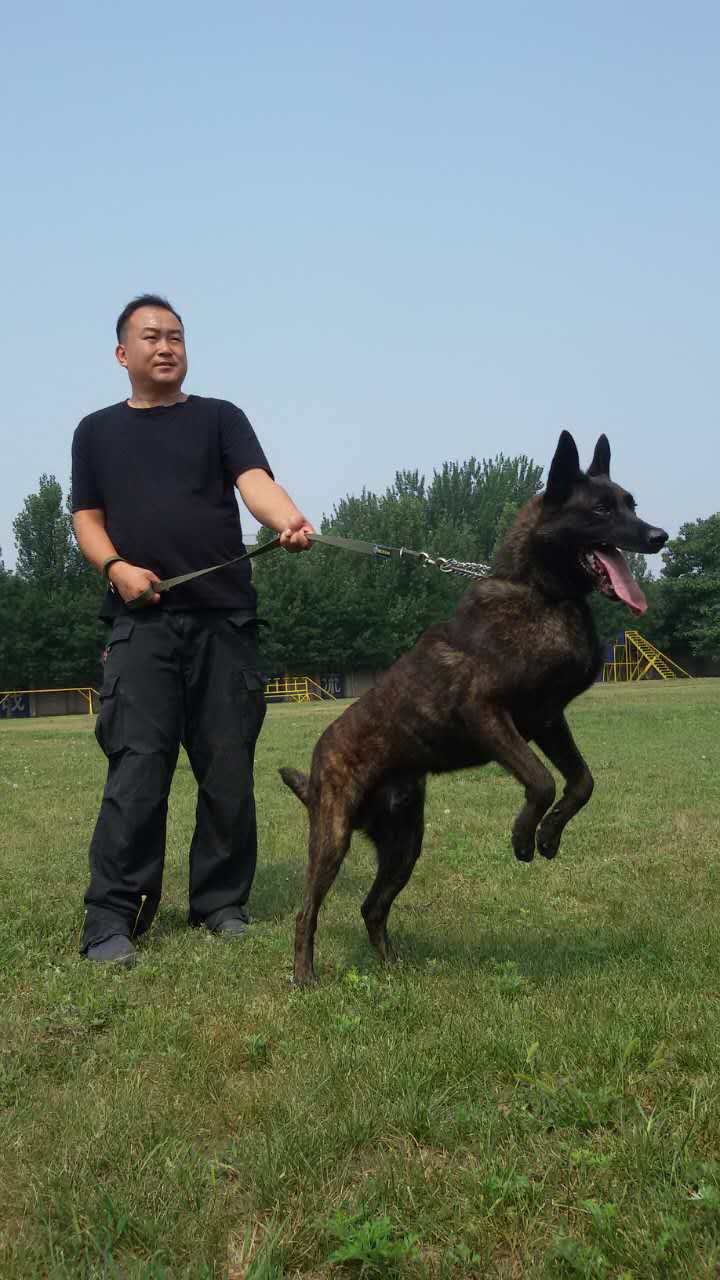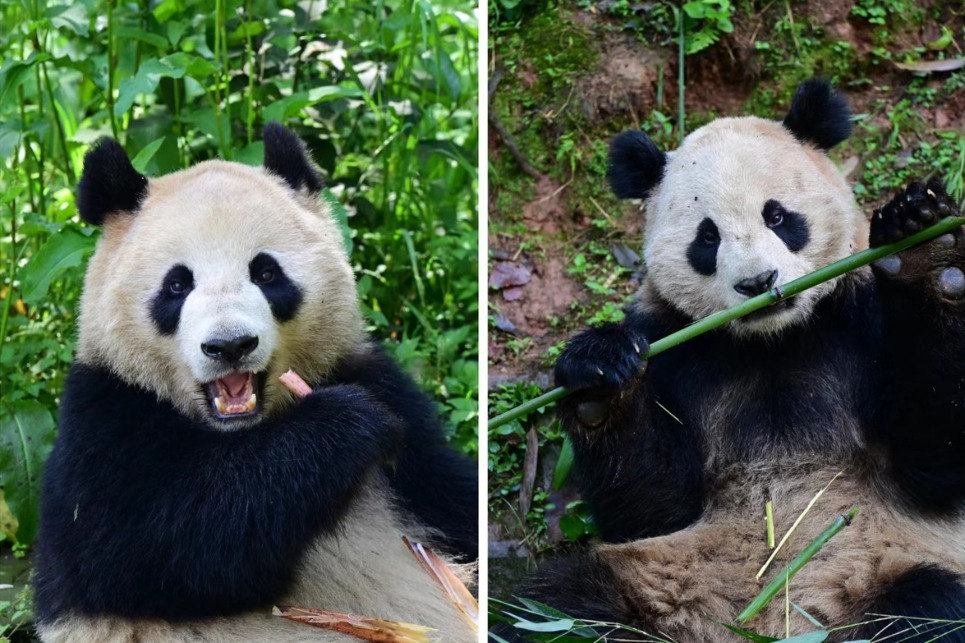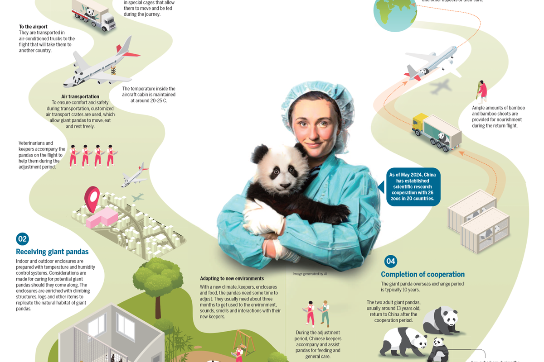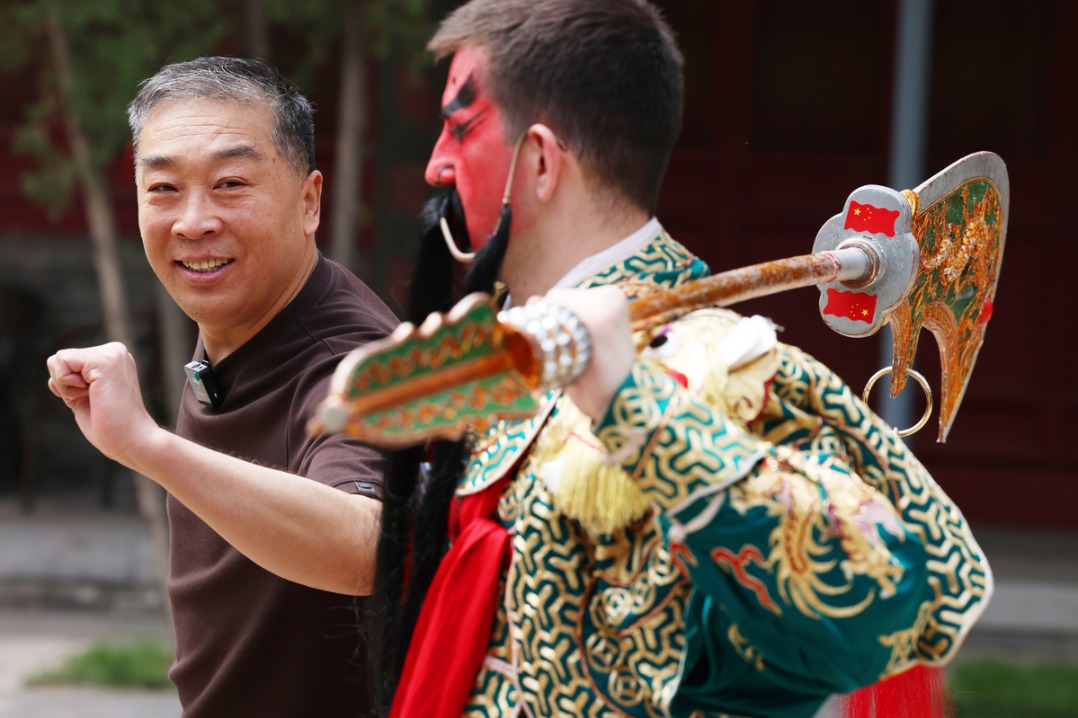Hounding criminals
By YANG ZEKUN | China Daily | Updated: 2020-10-06 09:20

There are 30 people working in different sections on Han's team.
Dogs are trained every day from 10 am to 11 am, 3 pm to 4:30 pm and in the early evening. Trainers need to send videos of each session to the team's WeChat group to record and analyze to improve both the trainers' and dogs' skills.
Han said most team members don't take their canines to participate in operations.
People praise the dogs that win prizes or work on cases but typically forget about the trainers.
Trainers like Han must wear protective clothing that weighs about 10 kilograms. Han said the suits can be hot in winter and sweltering in summer. Trainers limit their time in these clothes to half an hour to prevent heatstroke.
The clothing doesn't fully protect them. Sometimes, dogs' teeth puncture the clothes, leaving a V-shaped line of marks on trainers' skin.
The dogs are encouraged to attack with their full power. But trainers must use restraint, Han said.
"We must catch bites properly, which requires a lot of practice because it's human instinct to fear dog bites. If a dog feels uncomfortable while biting, it may lose interest in attacking. Then, our training loses its purpose," he said.
"Besides, intense confrontations during training may break dogs' teeth, which is their most powerful weapon."
Dogs are also trained to bite certain parts, such as the protective sleeves or pant legs.
But accidents happen.
Some new or overly excited dogs may bite the sleeves first and then quickly attack other body parts, such as hands, legs and torsos.
Trainers with different body sizes and strength levels train one dog so that it can face different criminals.
Nearly everyone on Han's team has suffered waist pain and stiffness caused by the dogs' powerful attacks.
"People undergoing such intensive exercises are prone to injury. Last year, my right leg's ligament was torn during training. I had surgery last February and rested for about four months," Han said.
Han's family has long worried about his health. They were upset when they saw his injuries in the early years.
So, he hid his wounds from his family and would sleep at the base for several days if he got hurt.
Han's son also loves dogs and has never missed their performances during the base's open-house sessions.
Han's family raised dogs for many years when they lived in Beijing's suburbs.
But their current home downtown doesn't have enough space for a dog, to his son's disappointment.
Still, Han said he hopes to help his boy keep his love of dogs, which he views as something passed down across generations.
























